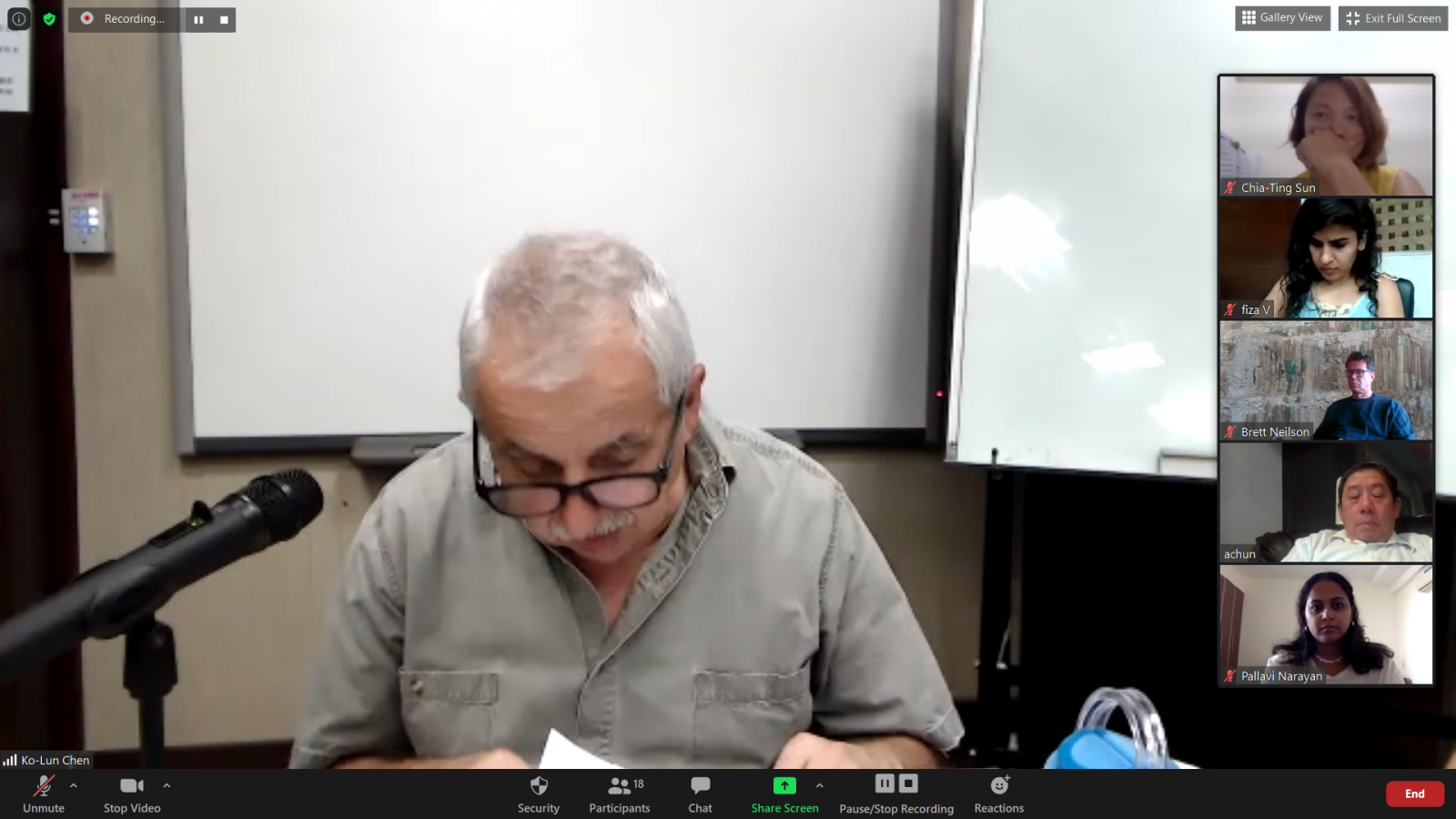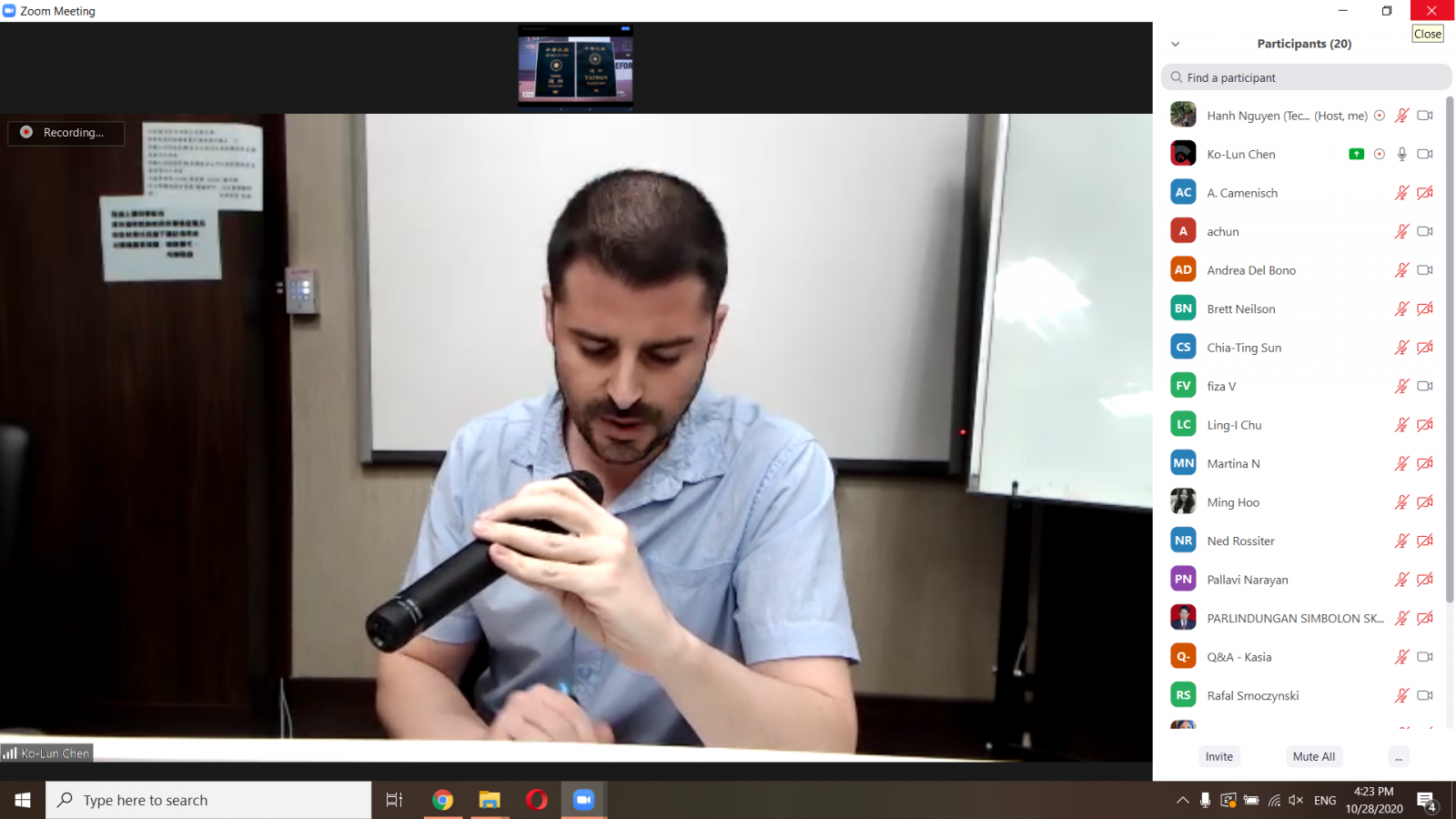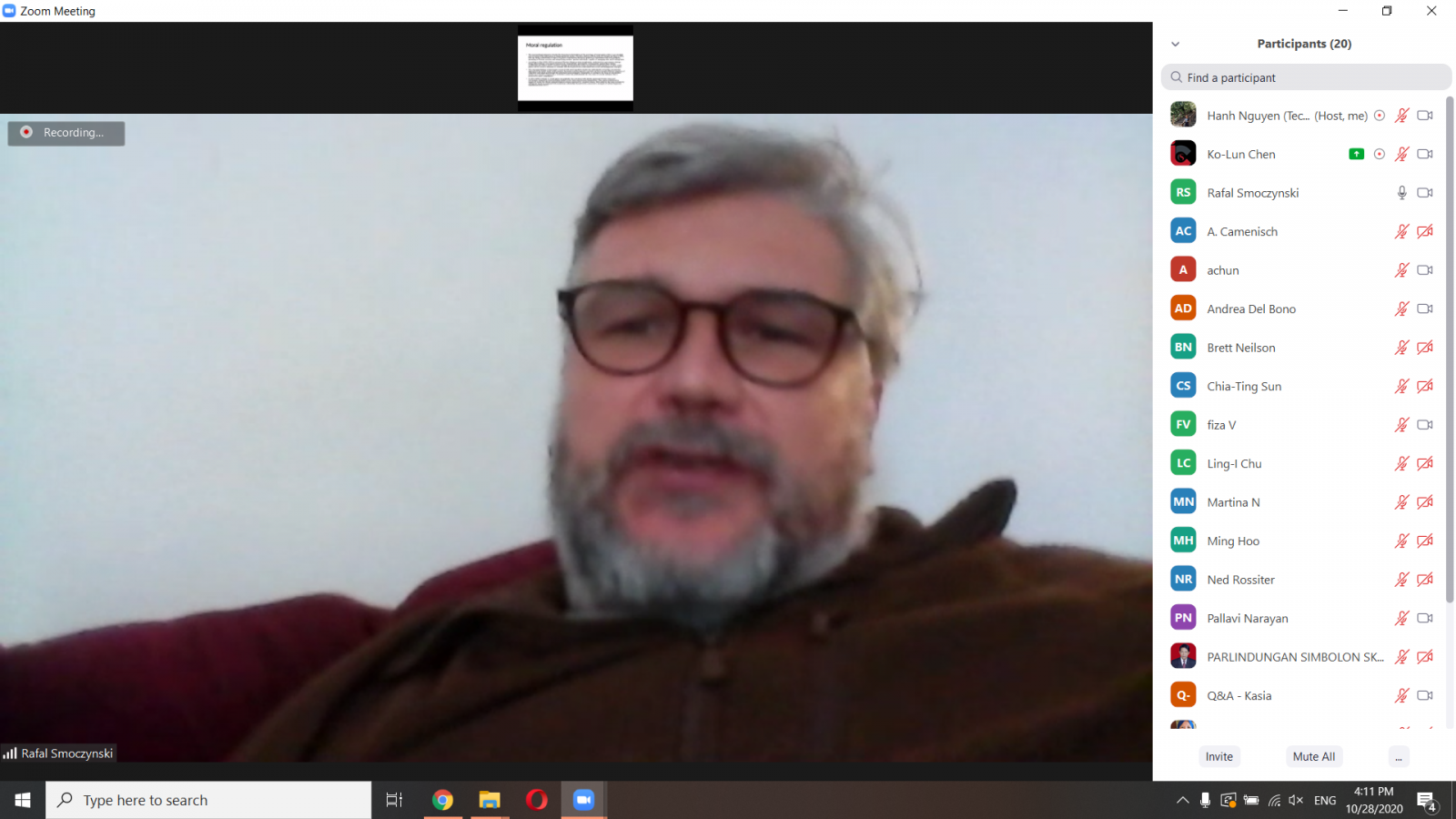

“Pandemic, Border Politics, and Xenophobia” - A Webinar Summary
2020-10-28
.png)



“Pandemic, Border Politics, and Xenophobia” - A Webinar Summary
Katarzyna Szpargala
PhD Student, SRCS, NCTU
On October 28th 2020, the CHCI - GLOBAL HUMANITIES INSTITUTE 2020-2021 continued its webinar series on the issue of "Migration, Logistic and Unequal Citizens in Contemporary Global Context.” The second webinar proceeded under the title of "Pandemic, Border Politics, and Xenophobia." The webinar was initiated by Juan Alberto Ruiz Casado; he introduced the webinar's program and its aims during his speech. The second webinar took place both offline, at the National Chiao Tung University, and online (via the ZOOM platform).
There were four speakers at the webinar:
● Professor Alain Brossat (National Chiao Tung University)
● Professor Yuan-Horng Chu (National Chiao Tung University)
● Professor Rafał Smoczyński (Polish Academy of Sciences)
● Juan Alberto Ruiz Casado (PhD candidate, National Chiao Tung University)
All presenters were given 20-25 minutes for their presentation. During their presentations, the speakers presented their critical point of view on current issues caused by the COVID-19 pandemic, such as the drastic turn in biopolitics during the pandemic, the uncertain situation of Chinese internal migrant workers after the crisis caused by COVID-19, the 'moral panic' of migrants in the post-Brexit era in the UK and the effect of anti-China narrative on Taiwan and the Taiwanese identity construction.
Professor Brossat, in his presentation titled The « late age » of Biopolitics, explained how the COVID-19 pandemic affected the states' politics towards their own people. Professor Brossat analyzed how much the states are willing to sacrifice to protect themselves and how ordinary people suffer under unequal treatment. During the pandemic, people are divided into two categories: those who can get proper treatment and those who are "on their own." By showing the example of the US and Western Europe, Professor explained how the pandemic revealed how some people have to be taken care of, thus are protected by states, and some have to be abandoned, thus their lives "don't matter."
His presentation perspicaciously examined how the COVID-19 changed the biopolitics and how some people are even more vulnerable in times of crisis.
After the first presentation, Professor Chu started his presentation with a brief explanation of the process of proletarianization. Then he went on to talk about the situation of mingong, Chinese internal migrant workers, and their struggles. Professor described the socio-economic struggles of the workers and how the pandemic affected their security. According to Professor Chu, China’s supply chain is breaking as many countries and companies will leave China in order to diversify their supply chain. This will have a profound impact on Chinese migrant workers.
At the end of the presentation, Professor Chu speculated on China's migrant workers' future and how their uncertain future can impact the Party-State regime and the possible consequences on the world economy and political scene.
Professor Smoczyński was the third presenter of the day. Professor Smoczyński's presentation wasn't directly related to the COVID-19; however, it provided an interpretative framework that can help understand other social reactions towards migrants and current social control techniques.
Professor Smoczyński presented his research about the situation of migrant workers, particularly Polish migrant workers, in the UK after the 2016 EU membership referendum. His presentation focused on anti-Polish sentiments and moral panic. He thoroughly explained the sociology of moral studies and the revision of the moral panic theory. Moreover, as Professor mentioned, together with social changes and new social movements concerned with progressive social programs, such as gender and race equality or environmental crisis, some moral panics can be called 'good' (Cohen, 2002).
Juan Alberto Ruiz Casado was the last presenter. His presentation was titled The “Chine Virus”: Sinophobia during COVID-19 and its Repercussions on Taiwan and Taiwanese Identity.” Juan started his talk by sharing his own experience in India, where his Taiwanese companion was discriminated against. Due to the COVID-19 outbreak, there was a rise of discrimination against Chinese people as some people were blaming China for the pandemic. Juan examined how the anti-China narrative going around the world can affect Taiwan. According to Juan, the tension caused by the pandemic and complicated relations between China and Taiwan might quicken the identity construction of the Taiwanese and support the independence of Taiwan from China. As one of the examples of the changes, he showed the new Taiwanese passport design - the redesign was made to stop the confusion between Taiwanese and Chinese citizens (shrinking the words "Republic of China" and making the word "Taiwan" bigger).
All the presentations introduced different problems that our societies are currently dealing with. Moreover, after the presentations, speakers and attendees had a chance to discuss and share their opinions and thoughts on the COVID-19 pandemic and the world's response to it. Attendees shared their experiences and observations. Additionally, thanks to the participants' diverse backgrounds, more examples and issues were introduced, which contributed to the discussion.
References:
Cohen, S. (2002). Folk devils and moral panics: The creation of the Mods and Rockers. London: Routledge.
近期新聞 Recent News


